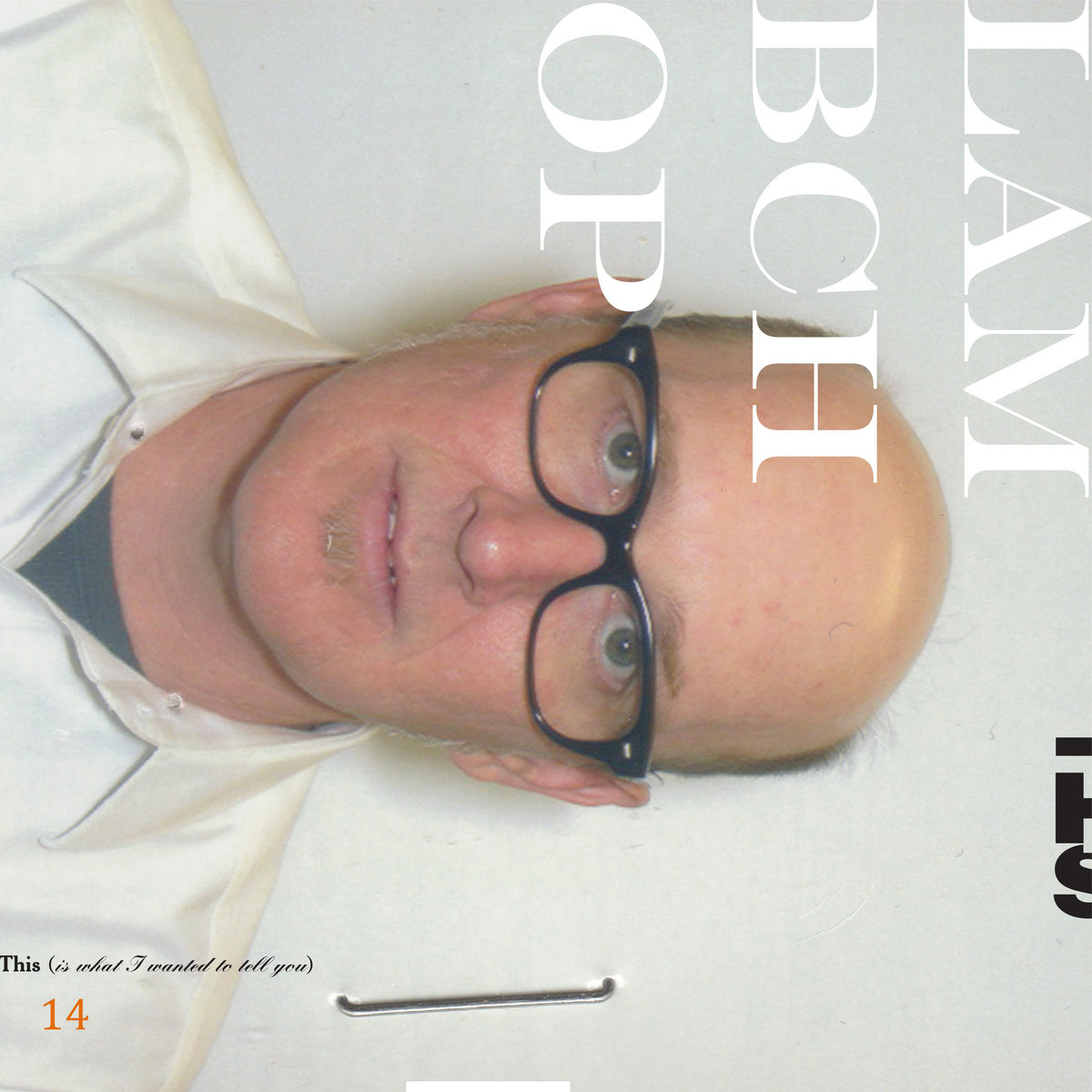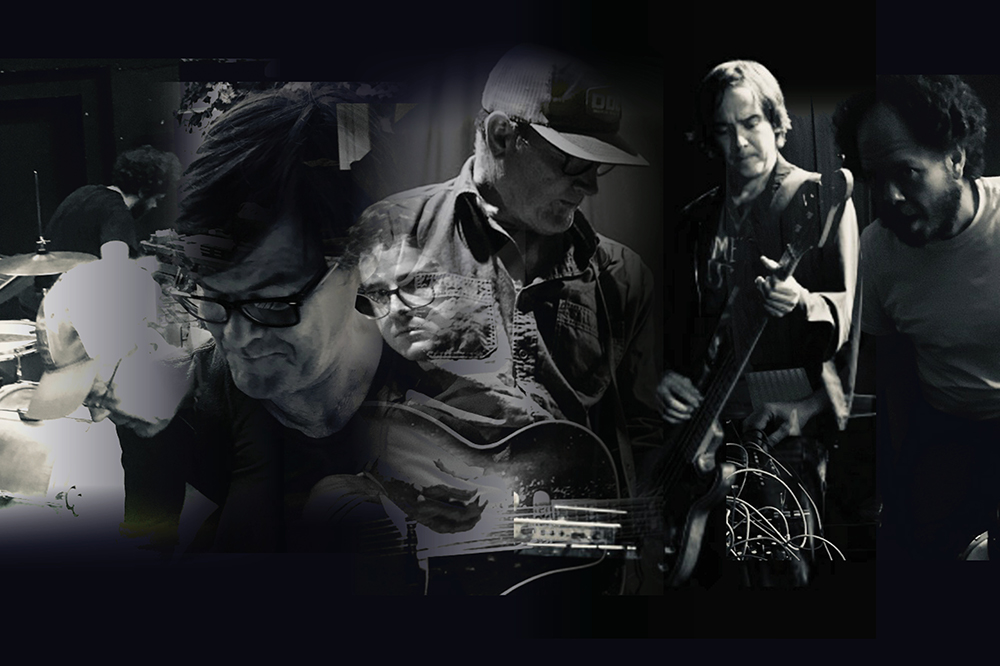On Kurt Wagner’s latest Lambchop album, This (Is What I Wanted to Tell You), there are a lot of lyrics about light, and how it shifts. “The light is heavy now,” he sings on “The Air is Heavy and I Should be Listening to You.” Later, on the title track, the light “hit[s] things just right.” The music furthers and illustrates the lyrical conceit. As on 2016’s inspired FLOTUS, Wagner processes his voice with his trusty TC-Helicon Voicelive 2 pedal for much of the album. Rather than cloaking or recasting the Nashville songwriter’s singing, the vocoder-style effect enhances and highlights its various aspects, like the sun hitting the same objects in a living room at different times of day.
Across 13 studio LPs and even more live albums, EPs, and early cassette releases, the shifting unit of Lambchop has often tried on different stylistic hats, while always leaving the term “alt-country” sloppily applicable to their music. With FLOTUS, they made their most dramatic pivot to date, essentially by modding Wagner’s voice into an entirely new instrument. What might have seemed like a poorly-conceived and less-than-sincere idea on paper ended up enhancing Lambchop’s musical appeal. Their latest release only confirms that Wagner’s choice—certainly a bold one for a 60-year-old singer-songwriter nearly three decades deep into his career—was made in good faith. Even more than on FLOTUS, the vocal effects and electronic textures of This (Is What I Wanted to Tell You) create a fractured and sometimes staggeringly beautiful sonic environment for his songwriting, which is as strong as ever here.
Wagner’s vocoder works in two important ways on This (Is What I Wanted to Tell You). It creates a tranquil and lightly damaged-sounding musical atmosphere that anyone would be happy to languish in for 45 minutes, and also gives the humor and sadness of Wagner’s lyrics a meaningful new context. It’s an effective tool for selling a sentimental line without corniness, or a non-sequitur which might not be as charming in a more natural delivery. (“I’m not playin’/Can’t hear the bass.”) The processing adds a beatific quality to some of the songs’ most crucial moments of revelation: “It’s been a fucking lovely day/I’m familiar with the way things are ’round here/It could slow me down.” This line in particular distills the tonal contrasts in Wagner’s songwriting across the album, in which bittersweet and self-effacing reflections rise from scenes of idyllic comfort and familiarity.
FLOTUS sounded like Wagner was dipping his toes into the use of electronics—an experiment that was surprisingly successful, yielding standout moments such as “The Hustle,” which distinguish themselves beyond any single track on This (Is What I Wanted to Tell You). On the new album, though, the strangely amalgamated musical language is more holistically related to the material, as if the sound is influencing the content of the songs, and vice versa, in a continuous feedback loop. The album juggles grooves and ambience, drum machine and roomy acoustic kit sounds, grand pianos and chintzy synths, programmed sub-bass and lyrical bass guitar. (Plenty of other sounds surface for a moment or two, surreptitiously: strings, horns, harmonicas, and so on.) Songs slip into skittering preprogrammed rhythms, and out of them just as easily, leaving Wagner’s voice to fall back into tidepools of itself. The echoes swell around him like voices inside his head.
Wagner is more willing here than he was on FLOTUS to embrace the kitschier possibilities of the technologies he’s playing around with. “Everything For You” employs a looped vocal sample and governing groove straight out of acid house, or late-’90s Moby. Even these passé touches serve the song, providing a lightly satirical counterpoint to the images of unfulfillment and societal malaise in the lyrics. “The news was fake, the drugs were real,” Wagner sings in one of the album’s quintessential Lambchop couplets. “The dream was gone, not its appeal.”
For all these shifts, This (Is What I Want to Tell You) never loses a sense of continuity. As the album progresses, any sense of contrast between the acoustic and electronic sounds begins to feel irrelevant, and often unnoticeable. Drum machines creep up and overtake the main kit, or Wagner’s manipulated voice morphs into a distended shadow of itself over the course of a verse, but the drift is never jarring. The mutations of the arrangements are gradual enough to be nearly imperceptible. Wagner’s oddball sense of form, which clearly arises intuitively for him and the band, soon also begins to seem logical for the listener.
This (Is What I Wanted to Tell You) invites the listener to a singular texturally rich sonic universe, and populates that universe with sharply written, emotionally embodied songs, without favoring one side over the other. At times, the album reminds you that it would still be a fascinating listen even without vocals. When Wagner processes his singing to the limits of intelligibility, it functionally feels like an instrumental record for a while. But it also finds him delivering some of the finest lyrics of his career, full of joking asides and the quotidian koans he’s always specialized in. The wall of processing enhances the conversationality instead of stilting it, as with the burbling exclamation of “I’m in a Mexican restaurant bar/Watching surfing and it’s amazing.”
On the title track, the processing gradually falls away, leaving Wagner in a vulnerable place between speaking and singing—a sort Wizard of Oz moment, exposing the machinations that have been happening behind the autotuned curtain the whole time. And on the final track—a fingerpicked guitar waltz called “Flower” with harmonica interjections—Wagner is back in fully acoustic mode, singing hoarsely. “Give me back my Christian name/I see your reflection/And I say hello,” he sings in the final seconds of the album, staring the “you” in the title directly in the face for the first time. I’m still here, Wagner seems to be reminding us, but really, it never felt like he’d left at all.





